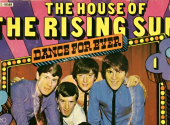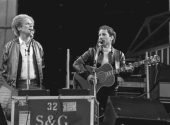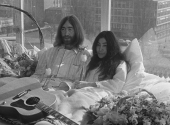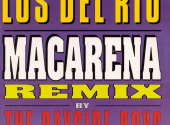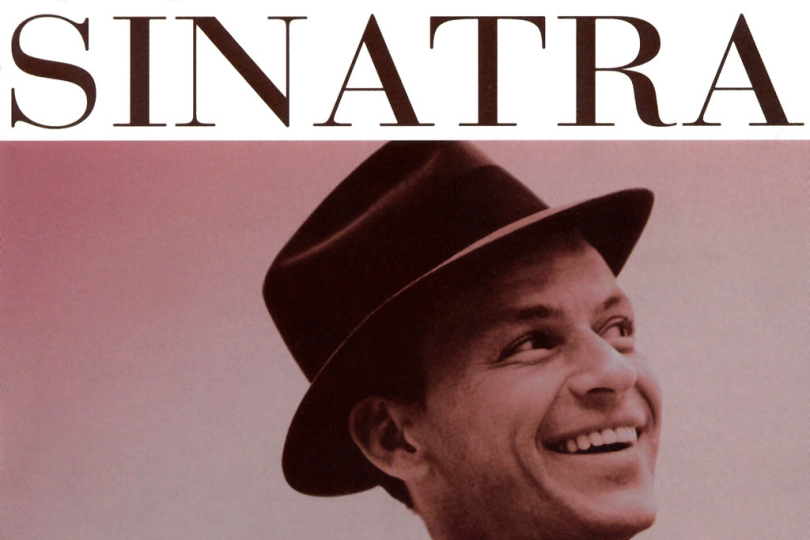
Story of a Hit #17: "My Way"
Frank Sinatra will live forever as an icon in the entertainment business, and there isn't a song out there that is better associated with his famous life. "My Way" is a song of personal power and self-reflection, and understandingly so, a favourite in funeral services around the world. It has a rich and interesting history and has surfed through popularity and cultural references for a good 50 years.
"My Way" started out as a hit named "Comme d'habitude" by French 60s and 70s superstar Claude François. The story is that Paul Anka was on holiday in the south of France, and was so entranced by hearing the hit on the radio, that he went to Paris specifically to negotiate the rights to use it.
Later, he met Frank Sinatra for dinner in the States where Sinatra supposedly told him "I'm quitting the business. I'm sick of it; I'm getting the hell out." It says a lot about the music business and how taxing it was on the big names, but it also created the setting for what would become one of popular music's greatest songs of nostalgia and self-reflection. Anka penned English lyrics for Sinatra himself, thinking, "if Frank were writing this, what would he say?"
Sinatra recorded it in one take at the end of 1968 and today it is regarded as his signature song. It charted very well, sitting for 75 weeks in the top 40 in the UK, but what was its appeal? Well, you can't go past Sinatra's impeccable voice and technique, nor the fantastic orchestral arrangement that supports the whole work, both of which were heralded by critics.
But I think the lyrics and message of the song are what really make it stand out, and what has cemented it as a favourite all around the world. It tells the story of a man who has led a full life, and reflecting on the highs and the lows, can say he has lived in his own way. "I've lived a life that's full, I travelled each and every highway [...] I did it my way."
It is a celebration of self-determinism, of independence and stubbornness. It tells a compelling story that slowly unfolds as the arrangement gains intensity, and every minute or so it circles back to that brilliant short chorus, "I did it my way". By the end, Sinatra is in full form, ending with a nostalgic final echo of the song title.
It's hard to imagine the song with a different text altogether, but that's how it started out. Claude François' original version, "Comme d'habitude" (roughly, "As Usual") is about something quite different, a relationship that is falling into routine and out of love. It works extremely well, and the similarities are remarkable.
It shares that sense of nostalgia and self-reflection, and the atmospheric chord progression and orchestral arrangement really carry the story. Like Sinatra's version, it explores a universal theme, something that we have all lived through or witnessed in some way. Of course, it uses the title of the song maybe a little too much, but it drives its message through with utter dedication.
David Bowie actually wrote the first English lyrics to "Comme d'habitude" back in 1968, before his career as an entertainer shot off, and perhaps before Paul Anka had even heard it. "Even a Fool Learns to Love" was never recorded but it's fascinating to see how the song might have been.
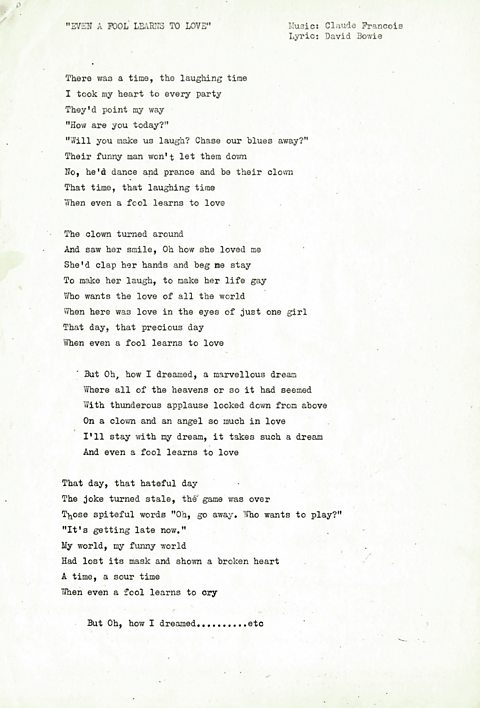
It's a testament to the power of the melody and arrangement that it inspired a similar message and feeling. You can even imagine Sinatra singing it because the sense of self-reflection is so strong.
Of course, it was so important a song for Sinatra that he eventually began to hate it, according to his daughter Tina. And in many ways, it has gone on to represent Sinatra and his life, because he certainly lived it to its peak. Other than having a hugely successful career in acting and music, he was married four times, and "at the height of his fame he mixed with the stars, with presidents and with mobsters," to quote the BBC.
The backlash against such a hit is only inevitable, so it's no wonder the song has had many covers, some not as quaint as others. Sid Vicious of the Sex Pistols recorded in 1978.
Other than being a parody in some obvious ways, it's a lot more than that, and arguably part of the wonderful history that is "My Way". Paul Anka said he was "somewhat destabilised by the Sex Pistols' version [...] but I felt he [Sid Vicious] was sincere about it."
And that's exactly the point, Vicious' version is just another, perhaps more cynical interpretation of what it means to do something "My Way", and the punk rock beats and out-of-tune singing simply reinforce that. Their version is absolutely a celebration of what makes "My Way" the hit it is. In many ways, Sinatra's song was begging for an interpretation just like this.
Leonard Cohen supposedly said, "I never liked this song except when Sid Vicious did it [...] he provided that other side to the song; the certainty, the self-congratulation, the daily heroism of Sinatra's version is completely exploded by this desperate, mad, humorous voice [...] Everybody is the mad hero of his own drama."
But singing "My Way" out of tune might be more dangerous than you think.
Since the early 2000s, there has been a dark phenomenon that has emerged in the Philippines, named the My Way killings. In karaoke bars, supposedly multiple people have been shot dead, perhaps for singing the song so badly that someone retaliated, or perhaps simply because of the prevalence of violence in the nation's karaoke bars.
Whatever the cause, it's estimated that at least half a dozen people have been killed for singing the song, which spurned bars to ban it from their song lists.
This inspired a cover version of "My Way" by Japanese band Kishidan, which you can check out above. The song finishes with the lead singer being shot multiple times, and finally collapsing on the stairs. You can say a lot of things about the hit "My Way", but I think somehow this music video sums up how we might look and listen to it today, in the 21st century. Sure, you can do it your way, but there are always consequences.
What do you think, does "My Way" tell a compelling story of self-reflection and personal independence, or is it a dated sentiment in today's world?
Leave us your opinion in the comments below!
If you have found an error or typo in the article, please let us know by e-mail info@insounder.org.


